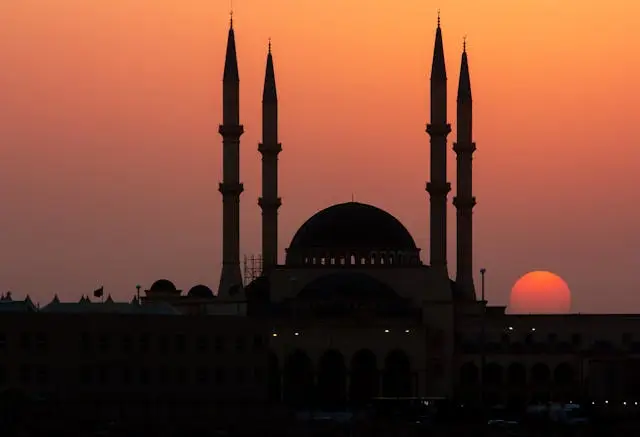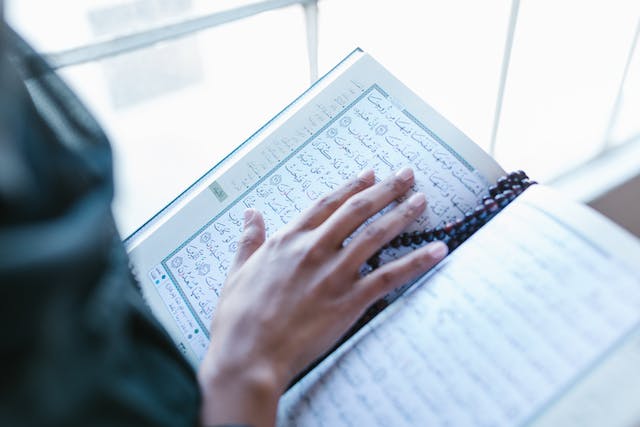The 5 Pillars of Islam: Foundation of Faith and Practice
Islam is a complete way of life — a divine guidance revealed by Allah ﷻ for all humanity. It provides not only spiritual connection but also moral discipline and social balance. At the heart of this beautiful religion stand the Five Pillars of Islam, which form the foundation of a Muslim’s faith and actions.
These pillars serve as the guiding framework for every believer, helping them maintain a strong relationship with Allah, live righteously, and build a community based on faith, compassion, and justice. Understanding and practicing these pillars allows a Muslim to strengthen their iman (faith) and live in harmony with the teachings of the Qur’an and Sunnah.

1. Shahadah – The Declaration of Faith
Meaning and Importance
The Shahadah (الشهادة) is the first and most essential pillar of Islam. It is the testimony of faith that proclaims one’s belief in the oneness of Allah and the finality of the Prophet Muhammad ﷺ.
In Arabic, it is recited as:
أَشْهَدُ أَنْ لَا إِلٰهَ إِلَّا اللهُ وَأَشْهَدُ أَنَّ مُحَمَّدًا رَسُولُ اللهِ
Transliteration: Ash-hadu an lā ilāha illā Allāh, wa ash-hadu anna Muḥammadan Rasūlullāh
Translation: I bear witness that there is no god but Allah, and I bear witness that Muhammad is the Messenger of Allah.
Explanation
This simple yet profound statement forms the very core of Islam. It is not just words but a declaration of faith that transforms one’s heart, actions, and worldview. The Shahadah separates belief from disbelief and affirms complete submission to Allah alone.
It teaches that Allah has no partners, equals, or intermediaries, and that Prophet Muhammad ﷺ is His final messenger — whose teachings complete the message of all previous prophets.
2. Salah – The Five Daily Prayers
Meaning and Obligation
The second pillar, Salah (الصلاة), refers to the five daily prayers that are obligatory for every Muslim. It is a direct link between the believer and the Creator.
Allah ﷻ commands in the Qur’an:
“Indeed, prayer has been decreed upon the believers a decree of specified times.”
— (Surah An-Nisa, 4:103)
Timings of Salah
Muslims pray five times daily:
- Fajr – before sunrise
- Dhuhr – midday
- Asr – afternoon
- Maghrib – just after sunset
- Isha – night
Each prayer renews faith, cleanses the soul, and keeps the believer mindful of Allah throughout the day.
Spiritual Benefits
- Builds discipline and consistency in life
- Purifies the heart from sin and pride
- Strengthens connection with Allah
- Unites Muslims globally in worship
Salah is not just ritual; it’s a conversation between the servant and the Lord, filled with humility, gratitude, and hope.
3. Zakat – Charity and Social Justice
Meaning and Purpose
The third pillar, Zakat (الزكاة), literally means purification and growth. It is the obligatory charity that purifies one’s wealth and ensures fairness in society.
Allah ﷻ says:
“Take from their wealth a charity by which you purify them and cause them increase.”
— (Surah At-Tawbah, 9:103)
Obligation
Muslims who possess a certain minimum amount of wealth (known as Nisab) are required to give 2.5% of their savings annually to the poor and needy.
Purpose of Zakat
- Reduces poverty and inequality
- Strengthens brotherhood among Muslims
- Cleanses the heart from greed
- Distributes wealth justly within the community
Through Zakat, Islam establishes a balanced economy where no one is left forgotten.
4. Sawm – Fasting in the Month of Ramadan
Meaning and Spiritual Significance
The fourth pillar, Sawm (الصوم), refers to fasting during the blessed month of Ramadan. It is an act of worship, self-restraint, and gratitude. Muslims abstain from food, drink, and sinful behavior from dawn to sunset.
Allah ﷻ says:
“O you who have believed, fasting is prescribed for you as it was prescribed for those before you, that you may become righteous.”
— (Surah Al-Baqarah, 2:183)
Purpose and Benefits
- Taqwa (God-consciousness): The main goal of fasting is to strengthen one’s awareness and fear of Allah.
- Empathy for the poor: Experiencing hunger develops compassion and generosity.
- Spiritual renewal: Ramadan cleanses the soul and strengthens faith.
- Health benefits: Fasting helps detoxify the body and promotes discipline.
Fasting is not just about abstaining from food but also about guarding the tongue, heart, and actions from wrongdoing.
5. Hajj – The Pilgrimage to Makkah
Meaning and Rituals
The fifth pillar, Hajj (الحج), is the pilgrimage to Makkah that every adult Muslim must perform at least once in their lifetime if physically and financially able.
It is performed during the Islamic month of Dhul-Hijjah and includes several rituals such as Tawaf (circling the Ka‘bah), Sa‘i (walking between Safa and Marwah), standing at Arafah, and animal sacrifice.
Allah ﷻ says:
“And [due] to Allah from the people is a pilgrimage to the House – for whoever is able to find thereto a way.”
— (Surah Al-Imran, 3:97)
Purpose and Lessons of Hajj
- Symbol of unity: Muslims from all races and nations gather as equals before Allah.
- Reminder of the Day of Judgment: Dressed in simple white garments, all stand humbly before their Creator.
- Spiritual cleansing: A sincere Hajj wipes away past sins.
- Strengthens the Ummah: Hajj unites Muslims worldwide in devotion and remembrance of Allah.
The Spiritual Harmony of the Five Pillars
Each of the Five Pillars nurtures a different aspect of a believer’s life:
- Shahadah builds belief and identity.
- Salah maintains the connection with Allah.
- Zakat spreads compassion and justice.
- Sawm purifies the soul and cultivates self-control.
- Hajj completes the journey of spiritual fulfillment and unity.
Together, they shape a Muslim’s faith, character, and community — guiding them toward success in this life and the Hereafter.
Frequently Asked Questions (FAQs)
1. Why are the Five Pillars important in Islam?
They are the foundation of Islamic belief and practice. Without them, faith remains incomplete. They bring structure, purpose, and meaning to a Muslim’s life.
2. Are all Five Pillars obligatory for every Muslim?
Yes, except Hajj, which is only mandatory for those who are physically and financially capable.
3. Can children learn about the Five Pillars?
Absolutely. Teaching children the pillars from a young age helps build strong faith, discipline, and understanding of Islam’s core values.
4. What happens if a Muslim neglects one of the pillars?
Neglecting any pillar weakens one’s faith. However, repentance and renewal of intention can restore one’s spiritual strength.
Conclusion
The Five Pillars of Islam are not mere rituals — they are the essence of a Muslim’s faith and submission to Allah. Through these pillars, believers stay connected to their Creator, care for others, and purify their hearts from worldly distractions.
When practiced with sincerity, the Five Pillars elevate a Muslim’s life into one of purpose, peace, and eternal success.







